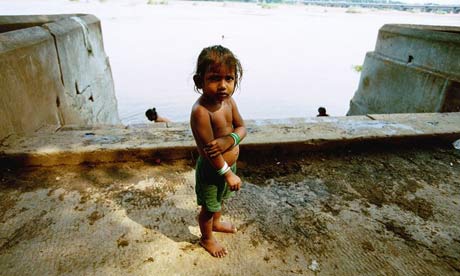The red carpet walk where Narendra Modi pirouetted at the BJP’s national executive meeting was like a film star at Cannes endorsing a cosmetic company. It was not for a new film release.
If he was given the honour as the number one guy, it was just to keep the party’s face pretty. We will get to that in a bit.
His opponents are out of the woodwork. Two former chief ministers of Gujarat Keshubhai Patel and Suresh Mehta are helming what the newspapers call the banner of revolt.
Those in the party speaking against Modi are said to be close to Sanjay Joshi, an RSS leader who was a victim of Modi’s bullying tactics at the national executive. In their meeting, the dissidents spoke about an atmosphere of fear in the state. “A state of mini-Emergency in Gujarat is now being extended to the national level,” said Keshubhai, referring to Modi’s hustling Joshi out of the national meet…they felt BJP president Nitin Gadkari should not have succumbed to Modi’s blackmail or allowed him to hijack the party ahead of the Gujarat elections in December. Keshubhai, who yet again described Modi as a “dictator”, set the tone of the discussion, saying, “Crushing dissent is not the culture of the BJP or Sangh Parivar. We don’t want such despotic leadership.”
Why did they wait for the meeting to get over? Crushing dissent is very much a part of the Sangh Parivar culture; only, it is called party discipline. If it was all democratic, there would be a second rung leadership. Sanjay Joshi has become the rallying point because he isn’t big enough to be threatening. But don't forget he is a RSS man, and the RSS pulls the strings where the BJP is concerned where it matters.
They are talking about phone tapping. How is it then that Sanjiv Bhatt’s phone was not tapped when he says he has evidence of certain calls where Modi could be nailed?
It is surprising that they are complaining about it now when in 2008 Modi was all set to increase his spy network that would cost the state a staggering Rs 20 crore. Its main task was not to counter terrorism and foreign espionage. His spies were to watch every move of the state’s politicians, including the chief minister’s own men and rivals within the BJP, as well as prominent social workers and members of the business community.
Intensive spying by IB sleuths on local politicians at Modi’s behest have been doing the rounds since 2002, but six years later he increased it by almost 40 per cent. Around 400 government spies were active in the state and additional 93 spies were reportedly brought in from other departments or recruited afresh.
From Rs 17 crore spent every year on the spy network since 2003, the figure jumped to Rs 33 crore in 2008.
Politicians are an insecure bunch, and those like Modi use such blackmail tactics to stay in power and threaten people. It is entirely possible that all those who have been singing about economic development, including some Muslim businessmen, have been under such surveillance and just learned to keep their mouths shut.
Could Modi justify such expenditure? He is the one who rails against terrorism all the time, so why did he not deploy vigilante groups for more concrete efforts?
That is the point. I do not agree with this state of emergency in Gujarat extending to the national level. BJP president Nitin Gadkari knows that right now Narendra Modi is a good publicity stunt. The meeting was in Mumbai, and the message was not for the politicians of the party, but for the business groups in the city. Gujarat is the BJP’s piggy bank. Nitish Kumar may have streamlined infrastructure and made the backward Bihar liveable, and Modi has only added tinsel to gold, but the latter is, as I said in the beginning, a better photo-op.
Much is being made of L.K.Advani’s absence. Let us be pragmatic. Mr. Advani may not want a second term for Gadkari, but Modi is not his calling card. If anything, he has let a Modi flourish simply because the BJP needs a fishbowl. The senior leader is in complete command, as he was even during Atal Behari Vajpayee’s tenure as prime minister. He knows who to keep where. And Modi could push away a Sanjay Joshi, but not a Gadkari. This is the RSS at play, a game Advani knows only too well.
The more important point is that Modi has to return where he belongs. It is this sense of being rooted in one place that makes him both arrogant and insecure. His boasts are exaggerated and his fears result in paranoia about his own. Sometimes, I do feel a tinge of sadness for him. He has to live with so many ghosts and so many private moments grabbed from others. Does he have the luxury of a life of his own?


















